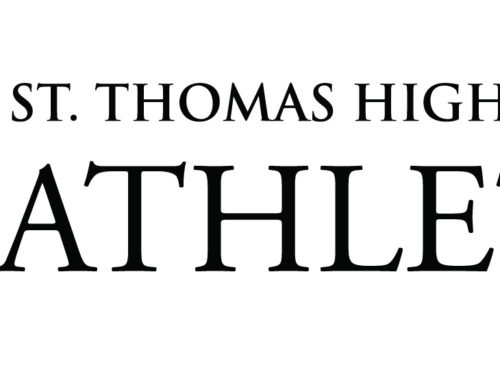Parents who want the best for their students have many educational options. You may have already decided that private school is your preference; but within that group, you’ll find religiously affiliated schools that do an excellent job at creating tomorrow’s leaders.
For many Catholic families – and others – Catholic high schools are appealing for many reasons, including faith and spiritual components, as well as a strong academic tradition.
And it’s worth noting that students need not be Catholic to attend Catholic school, as all faiths are treated with respect. As Mother Theresa told us, “It is important that everyone is seen as equal before God. I’ve always said that we should help a Hindu become a better Hindu, a Muslim become a better Muslim, a Catholic become a better Catholic.”
No matter what a student believes, Catholic schools are designed for individual success. The Center for Education Reform concludes that “The Catholic school climate, mission, and purpose positively impact student achievement and attendance.” – Catholic School Facts
Maybe a Catholic high school is right for your student – here is detailed information to help you make that important decision.
Focus on Moral Development
Catholic high schools prioritize the development of a strong moral compass for students of all faiths. As educational institutions affiliated with the Catholic Church, these schools integrate religious values and teachings into their curriculum and overall school environment in a variety of ways, including:
- Religious Education: Catholic high schools typically provide religious education courses that cover Catholic teachings, moral principles and values. These classes aim to deepen students’ understanding of faith and guide them in making ethical decisions.
- Faith Integration: Catholic high schools strive to integrate Catholic teachings into various subjects, not just religious education. This integration allows students to explore how faith and morality relate to other academic disciplines such as science, history and literature.
- Spiritual Development: Catholic schools often encourage spiritual practices such as prayer, meditation and reflection – which is valued across all faith traditions. These activities can help students cultivate a sense of spirituality and develop their moral conscience.
Says author and educator Paul Richard Kuehn, “According to the Catholic Church, Catholic schools are responsible for the human formation of youth. They are established to create for the school community a special atmosphere brought to life by the spirit of freedom and charity. Furthermore, they are set up to help youth to become aware of the news of faith in salvation and to help them lead an exemplary life of moral virtues. By doing this, the youth will become an agent of change for the betterment of society.”
A Rigorous Academic Foundation
Catholic schools place a strong emphasis on academic excellence, while also integrating Catholic values and teachings into the overall educational framework. In general, at a Catholic school families will find:
- High Academic Standards: Academically rigorous Catholic schools set high expectations for academic achievement. They offer a challenging, rich and diverse curriculum that prepares students for higher education and encourages intellectual growth across various disciplines. The goal is to develop a lifetime love of learning.
- In fact, according to Peoria magazine, All over the country, nearly 100 percent of Catholic high school students graduate; for public schools, that number is 78 percent. The disparity widens even more when considering college attendance, with 84.9 percent of Catholic high school graduates attending four-year colleges, more than double the rate of public schools. This number rises to 97 percent when the criterion is “some post secondary education.”
- Skilled and Dedicated Faculty: Catholic schools typically have highly qualified teachers who are passionate about their subjects and committed to helping students succeed academically. The faculty members often possess the necessary expertise and experience to provide a rigorous and engaging learning environment – especially in the case of single-sex education.
- Additionally, as noted in Peoria magazine, “When it comes to raising their child, many parents look at the teachers at Catholic schools as partners, trusting they are teaching the same values in school as they teach at home.”
- College Preparatory Focus: Many Catholic schools prioritize college preparation and offer a robust curriculum that includes Advanced Placement (AP) or dual-credit courses. They provide opportunities for students to pursue advanced coursework, engage in critical thinking, and develop strong analytical and problem-solving skills.
Says the Catholic Herald, “Catholic high school kids are set apart as they are well prepared and understand the rigors of writing skills, critical thinking, and their Catholic faith plays a huge role in this. College is the first time a lot of kids are venturing out without their parents or teachers. They have to have the moral compass to stand up for what they believe in (and) make the emotional transition to college. Catholic schools prepare kids for success in academic, faith, social and emotional well-being.” – Catholic High Schools Make a Difference in College Prep
Where Students Belong
Academically rigorous Catholic schools foster a supportive and engaged community of students, teachers, administrators, parents – and alumni. They promote a culture of collaboration, respect, and mutual support, creating an environment where students can thrive academically and personally.
In addition, Catholic schools provide a common religious foundation for students, faculty, and staff. The shared faith and values create a sense of unity and common purpose, promoting a feeling of belonging and shared identity within the community.
At the same time, the school’s clubs, organizations, arts and athletics programs unite students with common interests and goals, fostering a strong sense of connection, school spirit, camaraderie – and personal achievement.
Finally, many Catholic schools actively engage in community service and outreach initiatives. By participating in service projects together, students, faculty, and staff collaborate and connect with one another while contributing to the well-being of the wider community.
“Catholic school graduates are more civically engaged, more committed to service and more tolerant of others.” – Foundation to Advance Catholic Education, The Catholic School Advantage
Service and Social Justice
As mentioned above, Catholic high schools emphasize the importance of service to others and social justice. At many schools, students are encouraged to discuss, debate, and explore ways to promote the common good and uphold human dignity. By using their voices and their talents, they can raise awareness, promote policy changes, and address systemic issues that perpetuate injustice. Additionally, schools may organize events, campaigns, or initiatives that encourage students to actively work towards a more just and equitable society.
According to the Diocese of Galveston-Houston, “Catholic education fosters a sense of community and an abiding understanding of the importance of service to others. With a focus on actively living one’s faith and providing an example of character to others in daily life, Catholic Schools assist students in realizing their own personal gifts and learning to value the contribution of others.” – Why Choose Catholic Education?
Learn More About Us
At St. Thomas High School, a Roman Catholic college preparatory school for young men in grades 9-12 in Houston, Texas, we are focused on educating and enriching outstanding young minds during the most formative years of their lives. Through high-tech classrooms and state-of-the-art athletic facilities to the constant celebration of its rich and storied tradition, the diverse and welcoming St. Thomas community prides itself on providing the most fulfilling and well-rounded high school experience to inquisitive, ambitious and extraordinary young men. We foster a brotherhood for life.








